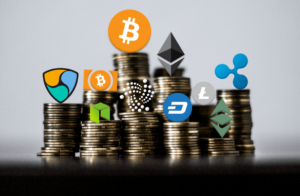
Digital currency, as the name proposes, utilizes encoded codes to impact a transaction. These codes are perceived by different computer in the user group. Rather than utilizing paper money, an online record is refreshed by customary accounting sections. The purchaser’s record is charged and the merchant’s record is credited with such money.
When an exchange is started by one client, her computer conveys an open cipher or public key that associates with the private cipher of the individual getting the money. In the event that the recipient acknowledges the exchange, the initiating computer appends a bit of code onto a block of a few such encrypted codes that is known to each client in the system. Special users called ‘miners’ can join the additional code to the publicly shared block by illuminating a cryptographic puzzle and acquire more digital money simultaneously. Once an miner affirms the exchange, the record in the block cannot be changed or erased.
BitCoin, for instance, can be utilized on smartphones too to sanction purchases. All you need to do is have the receiver examine a QR code from an application on your smartphone or convey them up close and personal by using Near Field Communication (NFC). Also note that is the same as normal online wallets like PayTM or MobiQuick.
Current users swear by BitCoin for its decentralized nature, worldwide acknowledgment, secrecy, the permanence of exchanges and information security. Not at all like paper currency, no Central Bank controls inflationary pressures on digital currency. Exchange records are put away in a Peer-to-Peer system which implies each computer contributes its processing force and duplicates of databases are put away on each such node in the system. Banks, then again, store exchanged information in central archives which are in the hands of private people employed by the firm.
